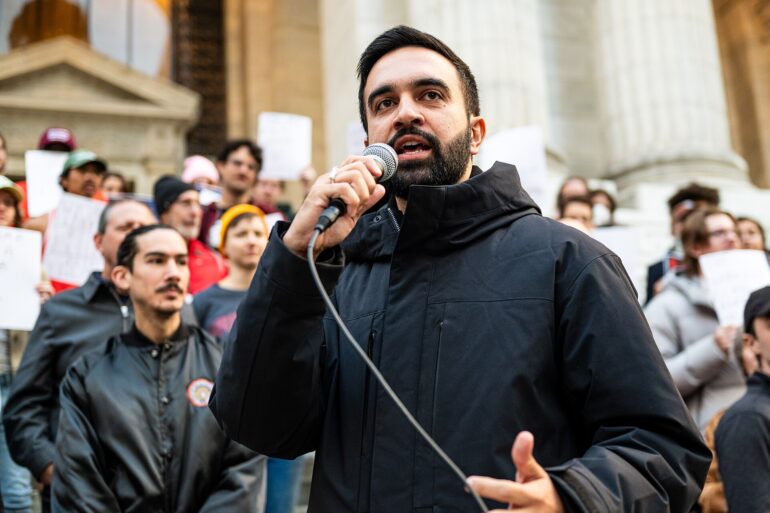Zohran Mamdani, a Democratic Socialist assemblyman from Queens who has now won New York City’s Democratic mayoral primary , has now reportedly come under fire from fellow lawmakers and political observers after publicly declaring his support for a pro-Palestinian protest group and accusing Israel of genocide.
The remarks have sparked renewed debate over the boundaries of political speech, the definition of antisemitism, and the Democratic Party’s internal divisions on foreign policy.
Mamdani made his comments during a rally in support of Columbia University student protesters, who have faced backlash for allegedly harboring antisemitic rhetoric and disrupting campus operations.
The assemblyman defended the student demonstrators, referring to them as part of a “movement for liberation” and accused critics of silencing dissent under the pretext of combating hate speech.
His remarks, however, quickly drew criticism from state and national figures across the political spectrum. Some Democratic colleagues called the statements inflammatory and irresponsible, especially in the wake of the October 2023 Hamas-led attack on Israeli civilians, which left over 1,200 dead.
Republican leaders went further, accusing Mamdani of sympathizing with terrorist actors.
The controversy intensified after Mamdani reportedly refused to condemn Hamas outright when asked by reporters.
Instead, he redirected focus to Israel’s actions in Gaza, characterizing the conflict as part of a broader settler-colonial structure. Critics said his refusal to acknowledge the brutality of Hamas’s actions suggested tacit approval, or at the very least, a dangerous equivocation.
Mamdani, the son of the ultra-left wing filmmaker Mira Nair and political theorist Mahmood Mamdani, has long identified with anti-imperialist causes and has positioned himself as part of the Democratic Party’s ascendant left.
He is affiliated with the Democratic Socialists of America, which itself has faced scrutiny for its stance on the Israel-Palestine conflict.
While Mamdani retains support among segments of his base — particularly younger voters and left-leaning activists — some Democratic insiders fear that such rhetoric risks alienating moderate voters and fueling Republican attacks during a crucial election cycle.
The controversy highlights an ongoing rift within the Democratic Party between establishment figures who largely back Israel and a vocal progressive faction that sees Palestinian solidarity as central to its political ethos.
Whether Mamdani’s statements will lead to electoral troubles in the general election remains to be seen. But as protests continue to roil campuses and communities across the country, his comments underscore the growing political cost of navigating the volatile terrain of Middle East politics in American discourse.
[READ MORE: Mamdani Leads in New York Mayoral Race as Adams Sinks to Fourth, Poll Finds]





